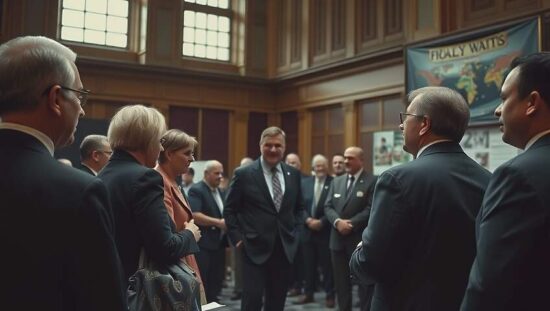Following a turbulent week marked by intense internal debate regarding mandatory military service, Defense Minister Boris Pistorius has engaged in a concerted effort to mend fences within the SPD parliamentary group. The move, which included a visibly conciliatory approach during Thursday’s plenary session, comes after a week where internal divisions threatened to undermine the government’s position.
Sources report that Pistorius actively sought out fellow SPD defense policymakers Falko Droßmann and Siemtje Möller, joining them in a seemingly amicable discussion on the backbenches. This gesture followed a period of significant friction, stemming from differing viewpoints on how to address potential shortfalls in voluntary military recruitment.
The conflict arose after Droßmann and Möller, in collaboration with representatives from the opposition CDU and CSU, proposed a lottery system to supplement volunteer recruitment. This compromise, designed to alleviate potential manpower shortages, drew sharp criticism from Pistorius, who publicly voiced his objections during a fractious SPD parliamentary group meeting. The resulting impasse forced SPD parliamentary group leader Matthias Miersch to backtrack on the proposed change within the opposing CDU/CSU faction, highlighting the extent of the internal strain.
Compounding the tension, a joint letter has now been drafted by Pistorius, Droßmann and Möller, intended for distribution within the SPD parliamentary group. The letter reaffirms the principle of voluntary service as paramount and states that any legal framework for potential conscription would only be considered if sufficient voluntary applicants fail to materialize. The Bundestag, the German parliament, would ultimately decide on any such measures.
However, behind the carefully worded statement lies a narrative of personal clashes and perceived humiliation. Journalists present at the scene reported observing Möller visibly distressed before the parliamentary session, allegedly due to Pistorius’s sharp critique of her presentation during the previous meeting. Accounts suggest Pistorius’s criticism was delivered with sarcasm, leaving Möller visibly upset.
The rapid shift from public confrontation to a joint letter raises questions about the depth of the reconciliation and the broader implications for the SPD’s approach to defense policy. The incident underscores the precarious balance between political pragmatism and maintaining party unity, particularly when navigating sensitive issues like mandatory military service. Analysts suggest that while the public display of unity appears positive, subtle power dynamics and underlying disagreements within the SPD are likely to persist, potentially shaping future debates on defense and national security.





